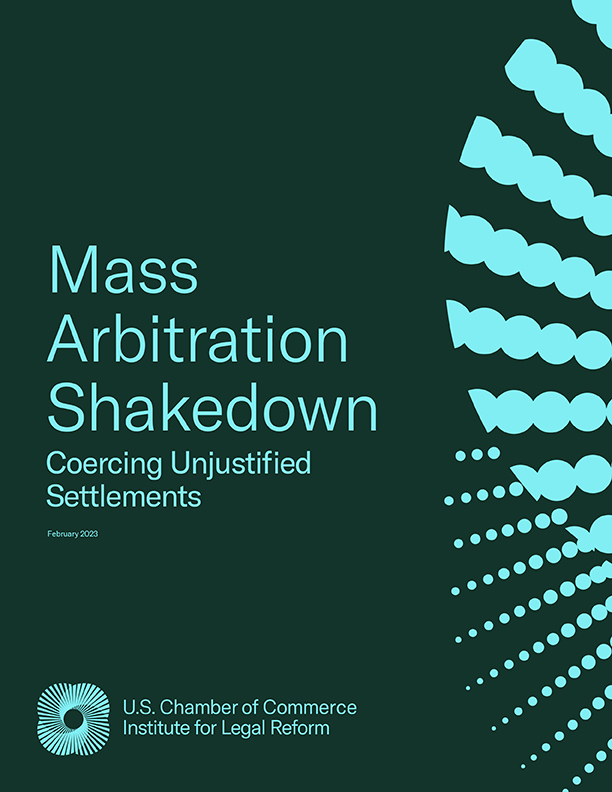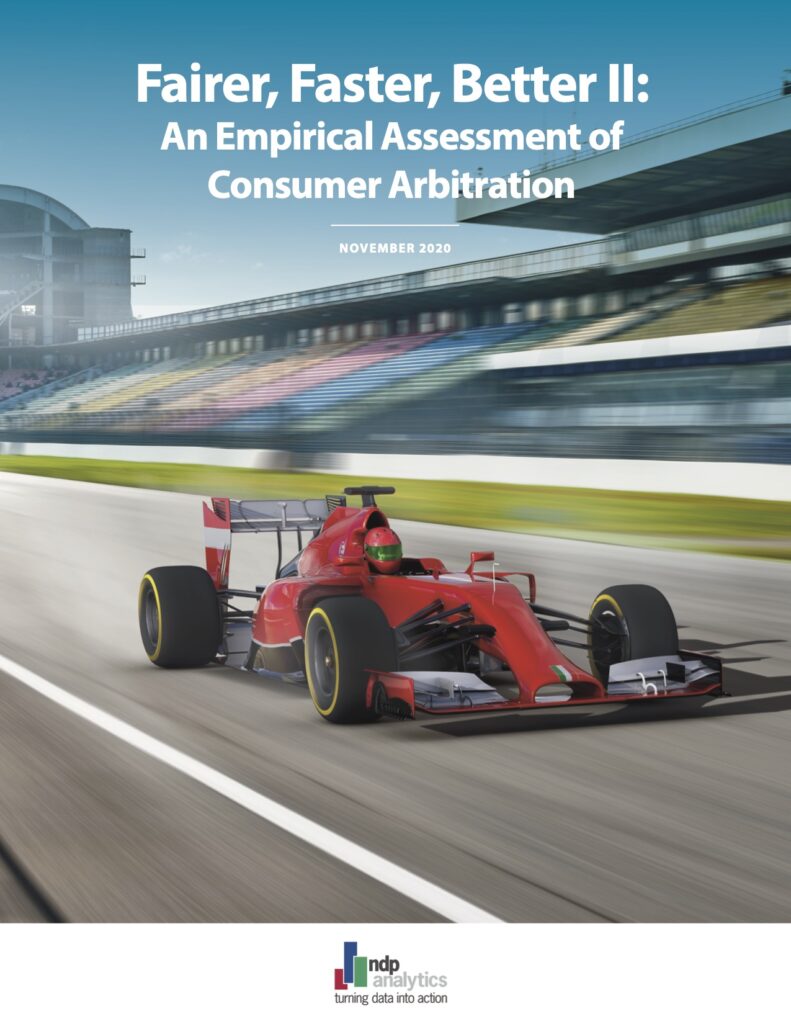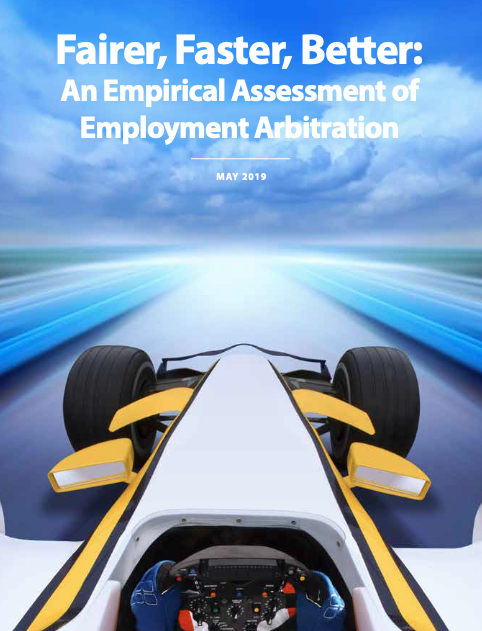Arbitration is a fairer, faster, and less expensive way to resolve disputes than time-consuming and expensive litigation.
FAQs
What Is Arbitration?
Arbitration is a process used to handle disputes outside of the court system. This form of alternative dispute resolution often provides a better option to a lengthy and expensive courtroom battle. Arbitration is performed out of court and the dispute is resolved by an impartial third party known as an arbitrator.
Why Is Arbitration Needed?
People can pursue claims in arbitration that, practically speaking, they either couldn’t pursue in court or would be more expensive and time-consuming if they had to file a lawsuit. Lawsuits can be expensive, and finding a lawyer to take on low-dollar disputes is often difficult. Most people have individualized claims that are not eligible for class action treatment. So, for many people, arbitration is their only real recourse to resolve disputes.
How Is Arbitration Better for Consumers, Employees, and Businesses?
An empirical study conducted by economic firm ndp | analytics and released by ILR shows that employees and consumers win more money, more often, and more quickly in arbitration than in a lawsuit.
- Employees were more likely to win in arbitration (almost 38 percent) than in a lawsuit (almost 11 percent).
- Consumers are also more likely to win in arbitration (approximately 42 percent) than in a lawsuit (29 percent).
- Employees, on average, won more money through arbitration ($444,134) than in a lawsuit ($407,678).
- On average, consumers also won more money through arbitration ($79,945) than in a lawsuit ($71,354).
- Arbitration disputes were resolved on average faster for claimants who prevailed (659 days for employees and 321 days for consumers) than in litigation (715 days for employees and 439 days for consumers).
What Is the Difference Between Arbitration and Litigation?
Litigation is the formal avenue for resolving legal disputes through the court system. Because litigation is done through the courts, it can be expensive and move slowly. The process of litigation comes with many associated costs, in addition to attorneys’ fees, including court filings, gathering evidence, and hiring expert witnesses. Since arbitration simplifies many of the steps required in litigation, resolving a dispute through arbitration can save both parties significant amounts of time and money.
Is there Opposition to Arbitration?
The number one priority of plaintiffs’ lawyers is to prohibit arbitration. Plaintiffs’ lawyers want to effectively ban arbitration at the state and federal level to increase the number of lawsuits – primarily class actions.
In class actions, lawyers often get big fees, while class members usually get little to no money. Businesses of all sizes bear the costs of legal fees and settlements for meritless lawsuits. Consumers pay the cost through higher prices for goods and services.
Why Is Arbitration More Efficient?
Individuals are empowered by arbitration’s simpler procedures. They can bring claims in arbitration without the need to hire a lawyer, including claims that are too small for a lawyer to take to court. When they succeed in arbitration, they usually don’t have to give a lawyer a big part of their award.
What Is Mass Arbitration?
Abusive mass arbitration is the latest plaintiffs’-lawyer strategy to try to eliminate arbitration. Businesses routinely pay all, or virtually all, of the fees charged by arbitration providers in order to increase access to arbitration for consumers and employees. With mass arbitration, plaintiffs’ lawyers file simultaneously tens of thousands of essentially identical arbitration demands, triggering an immediate, massive bill to businesses for arbitration fees—often totaling hundreds of millions of dollars. They do this in order to try to force businesses to settle cases, not to actually have an arbitrator determine the merits of individual disputes.
Why Is Mass Arbitration an Abuse of the Arbitration System?
Even if the claims are meritless or completely frivolous, the business is between a rock and a hard place: it is either pressured to settle a meritless case (or abandon arbitration altogether) or forced to pay that huge bill simply to have the chance to defend itself. And that sunk cost cannot be recovered even if the business wins every single arbitration.
Arbitration Takeaways
Employees and Consumers Do Better in Arbitration Than in a Lawsuit
Empirical studies have concluded that “there is no evidence that plaintiffs fare significantly better in litigation than in arbitration. In fact, the opposite may be true.”
A 2022 ILR report compares outcomes in consumer and employee arbitrations versus consumer and employee lawsuits in court and found that consumers and employees won more often, won more money, and won more quickly in arbitration than in litigation.
Win Rate:
- Consumers prevailed in 41.7% of arbitrations that terminated with awards compared to 29.3% of litigations that terminated with awards.
- Employees prevailed in 37.7% of arbitrations that terminated with awards compared to 10.8% of litigations that terminated with awards.
Amount Awarded:
- Consumers were awarded an average of $79,945 compared to $71,354 in litigation.
- Employees were awarded an average of $444,134 compared to $407,678 in litigation.
Time to Resolution:
- Consumers spent an average of 321 days from initiation to termination of their claim in arbitration compared to 439 days in litigation.
- Employees spent an average of 659 days from initiation to termination in arbitration compared to 715 days in litigation.
Arbitrations Employ Fair Procedures
Arbitration providers and the courts ensure that arbitration provisions will be enforced only if they meet basic guarantees of fairness and due process.
The American Arbitration Association (AAA), the country’s largest arbitration provider, developed fairness rules for employment and consumer arbitrations. These rules require that arbitrators must be neutral and disclose any conflict of interest and give both parties an equal say in selecting the arbitrator, limit the fees paid by consumers to $225 and by employees to $350 — less than or equal to the filing fee in federal court; empower the arbitrator to order any necessary discovery; and require that damages, punitive damages, and attorneys’ fees be awardable to the claimant to the same extent as in court. The AAA rules require that consumers be given the option of resolving their dispute in small claims court.
Arbitration Agreements Cannot Prevent Consumers or Employees from Discussing Claims Publicly or with Government Agencies – and Arbitrators’ Decisions Cannot be Kept Secret
Claimants are free to discuss their claims publicly and to report alleged wrongdoing to government officials. If an arbitration agreement purported to impose a “gag order,” that restriction would be invalidated in court.
State laws require disclosure of arbitration outcomes by arbitral forums such as the AAA, and courts consistently hold that the results of arbitration proceedings may be disclosed by either party.
Research
Resolving disputes through arbitration, rather than litigation, benefits consumers, employees, and businesses–the only ones that do not benefit from arbitration are plaintiffs’ lawyers. Confronted with a U.S. Supreme Court that has consistently upheld the right to individualized arbitrations, the plaintiffs’ bar is attempting to undermine arbitration by repurposing their class action playbook through abusive “mass arbitrations.”
For nearly a century, arbitration has provided a more equitable and efficient path to resolving civil disputes than litigation. It is no surprise then, that the plaintiffs’ bar and its allies have long attempted to undermine the arbitration mechanism. As their efforts reach a fever pitch, strategic research firm ndp | analytics has conducted an updated study of how arbitration performs compared to litigation.
Consumers are more likely to win in arbitration than in court. This research from ndp | analytics demonstrates that in disputes initiated by a consumer, consumers fare much better in arbitration than they do in litigation. Consumers initiated and prevailed in 44% of all consumer arbitrations that were terminated with awards during January 2014 – June 2020. During the same period, consumers initiated and prevailed in 30% of all consumer litigation cases that were terminated with judgments.
Contrary to the assertions made by the opponents of arbitration, employees in disputes with their employer are more likely to win cases, get more compensation, and get it more quickly in arbitration than in litigation. This study, performed by ndp | analytics, examined nearly 100,000 cases between 2014 and 2018, including over 90,000 federal lawsuits and 10,000 arbitrations.
Blogs
Podcasts
Due to the clear advantages of arbitration over litigation in any number of situations, and the need to preserve this important dispute resolution process, ILR has established the Coalition to Preserve Arbitration. The Coalition’s membership is varied and broad. AT&T is one member of the Coalition and has provided legal and technical support on an in-kind basis in connection with our arbitration-related activities. This disclosure is being made to comply with the requirements of the Lobbying Disclosure Act of 1995, as amended by the Honest Leadership and Open Government Act of 2007.



